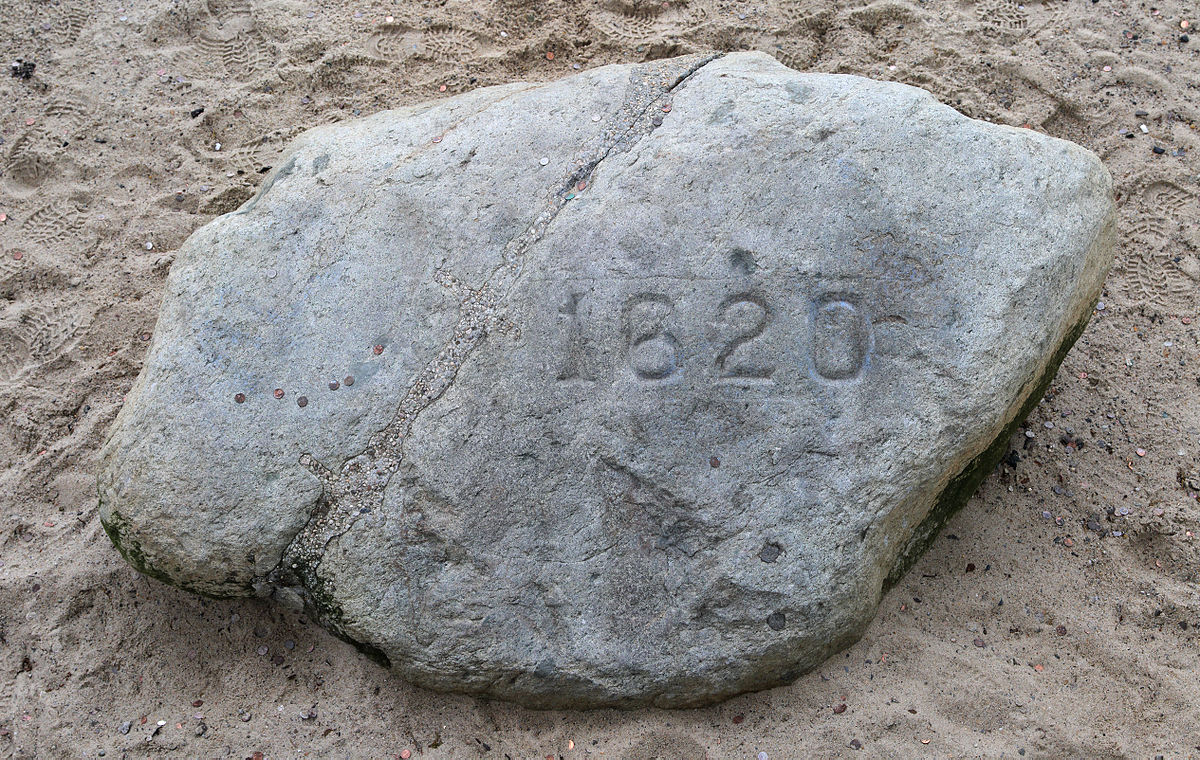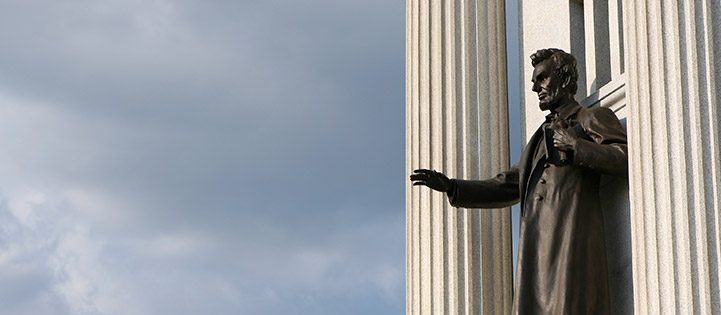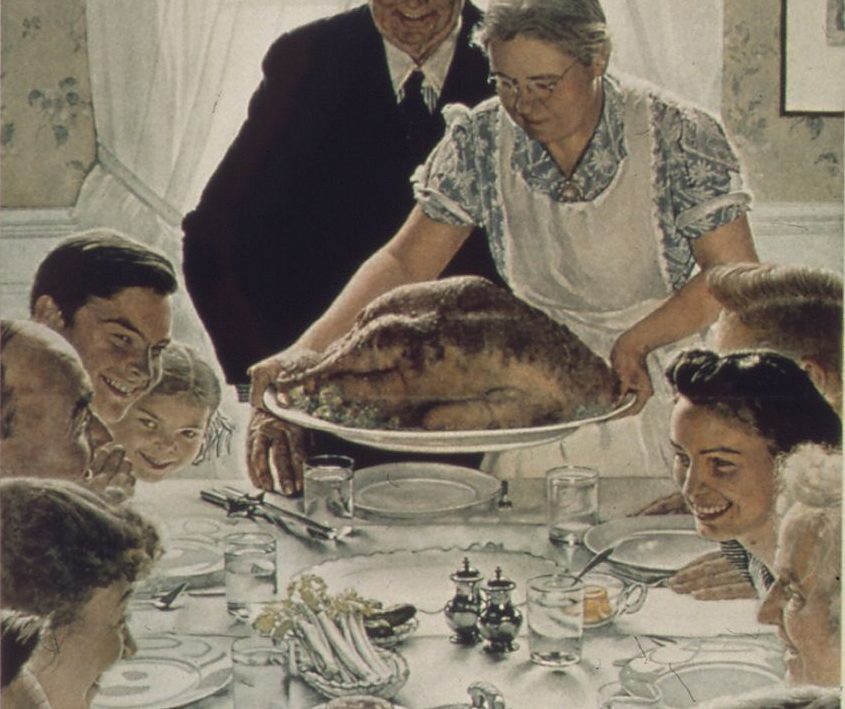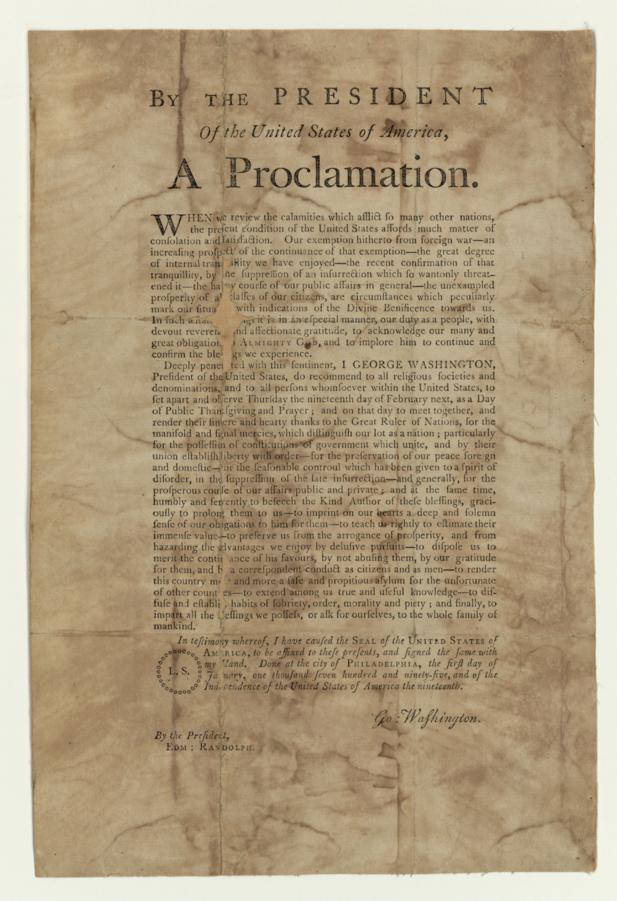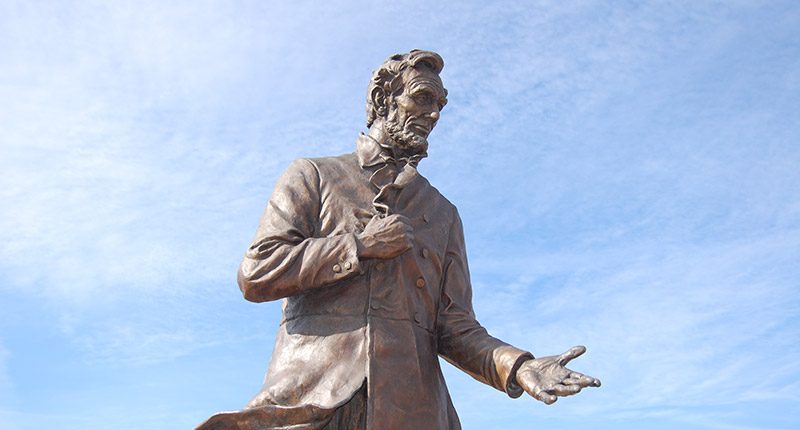Thanksgiving Wasn't Always a Source of National Unity.
American Civil Religion, Rightly Understood

Thanksgiving: American Civil Religion Done Right.
Imagine that instead of a big banner on an aircraft carrier announcing “Mission Accomplished” President George W. Bush had proclaimed a national day of thanksgiving. Or if, as part of his response to the financial crisis facing the nation when he took office, President Barack Obama called for a national day of humiliation and fasting.
If that sounds constitutionally sketchy (the ACLU tweets practically write themselves), it’s because there are wealthy ideologues working hard to make us think so. But they are wrong. While the hypotheticals above may be nearly unthinkable today, they are exactly what presidents used to do. The first president to proclaim a national day of Thanksgiving was, of course, the first president. And John Adams, the second president (and erstwhile co-author of the Declaration of Independence), proclaimed a national day of humiliation and fasting (May 9, 1798).
Civil religion has always been an important part of the fabric of America. There is something distinctly un-American about secularism. From those early proclamations to the abolitionist evangelicals to Abraham Lincoln to Martin Luther King, Jr., a core part of the story of the United States is that while we don’t unite church and state, we do believe in God and country. Much of the choicest fruit of American liberty has been nurtured in a soil enriched by religion.
Even as religious as America remains today—and by Western industrialized nation standards we are very religious—many are palpable embarrassed about that fact, especially among Christians. Yale sociologist Phil Gorski has shown two false narratives in his work on civil religion: that the United States was a purely Christian nation from the beginning and that it was entirely an exercise of (inherently secularizing) liberalism. The latter thesis has been recently brought into sharp relief by such works as Patrick Deneen’s Why Liberalism Failed, and the former by such controversialists as David Barton. But both these theses are wrong.
A politics with no place for God is as alien to America as Catholic integralism would be. Rather, acknowledging God as Creator and ultimate authority has always had a prominent place in the public square. Furthermore, belief in God and other tenets of natural theology, as the ground of our most cherished freedoms (“endowed by their Creator with certain unalienable Rights”), have always been an important part of deliberations on the major questions of our common political life.
And here, just when and where we need it, stands Thanksgiving Day, embodying the history of American civil religion. It is a day set aside to gather with friends and family, feast upon the bounty of creation, and thank God for his Providence. Notice how Thanksgiving sits between the horns of the dilemma about the place of civil religion. Far from a secularist holiday, Thanksgiving calls us to contemplate the transcendent, larger reality suffusing our daily lives. But it’s not sectarian. It is not a Catholic holiday or Presbyterian holiday, nor even a Christian holiday. It was made an annual tradition not by the Christian church, but by President Abraham Lincoln. It was a political authority who proclaimed that thenceforth every American should set aside this day to thank God for the blessings He has given us.
As all our holiday lore reminds us, Thanksgiving is quite a comfort, in fat years and in lean. But it should also be a challenge. The holiday should mark a fundamental orientation towards politics and religion, not circumscribe the exercise entirely. The politics of Washington, Lincoln, and King is a politics of Providence. We do well to acknowledge that providence publicly and often. I can scarcely say it better than Mr. Adams, and so I give him the last word:
“the safety and prosperity of nations ultimately and essentially depend on the protection and blessing of Almighty God; and the national acknowledgment of this truth is not only an indispensable duty which the people owe to Him, but a duty whose natural influence is favorable to the promotion of that morality and piety, without which social happiness cannot exist, nor the blessings of a free government be enjoyed.”
The American Mind presents a range of perspectives. Views are writers’ own and do not necessarily represent those of The Claremont Institute.
The American Mind is a publication of the Claremont Institute, a non-profit 501(c)(3) organization, dedicated to restoring the principles of the American Founding to their rightful, preeminent authority in our national life. Interested in supporting our work? Gifts to the Claremont Institute are tax-deductible.
How Abraham Lincoln created Thanksgiving.
Thanksgiving remains one of our few unifying traditions.
We should be thankful for the sheer wonder of being.
The Genuinely American Debate over Federalism and Thanksgiving.
Allen Guelzo, Richard Brookhiser, Joseph Bottum, and Justin Dyer on the thought and action of Lincoln's Thanksgiving and his wrestling with God.

